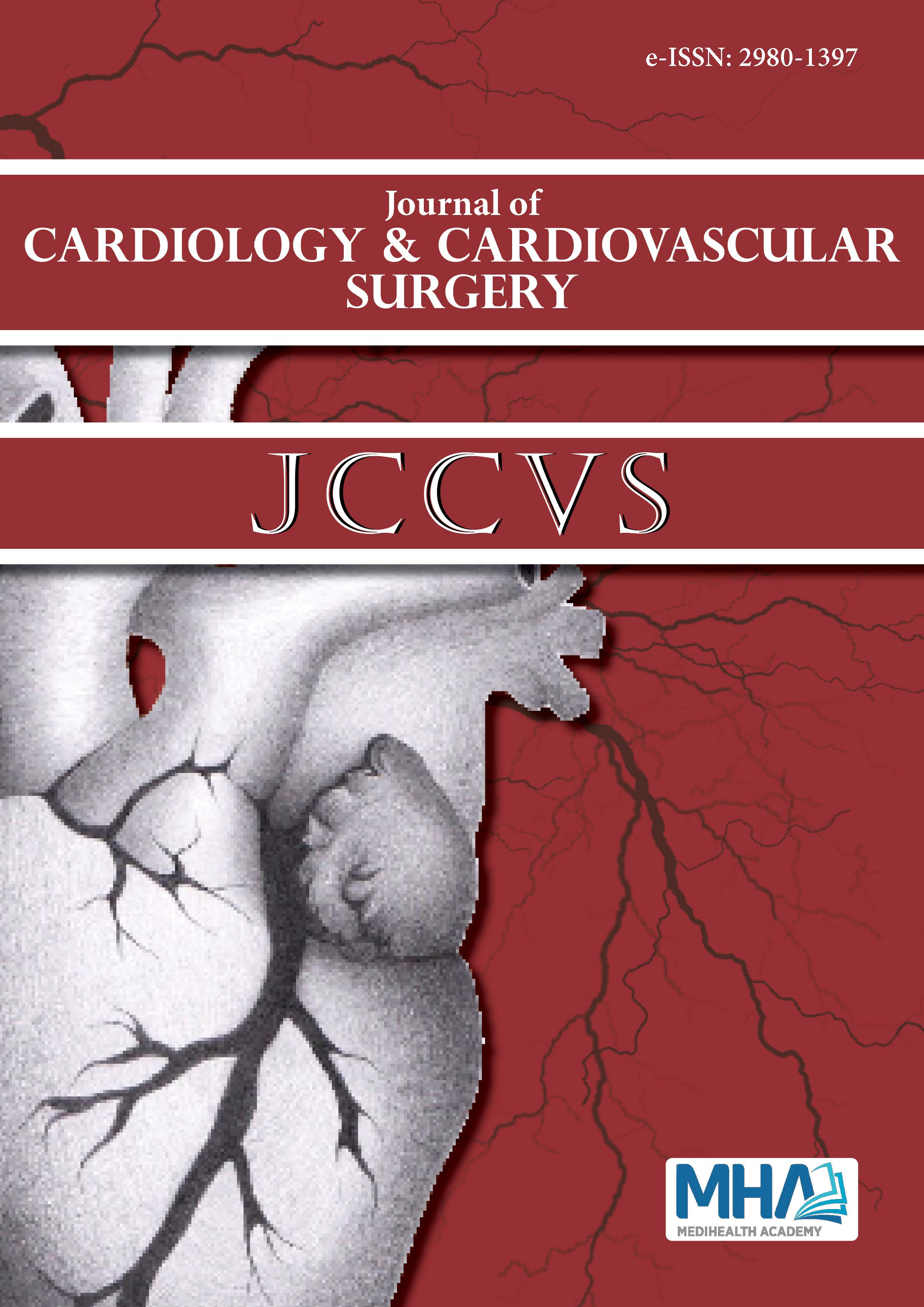1. McEvoy JW, McCarthy CP, Bruno RM, et al. 2024 ESC Guidelines forthe management of elevated blood pressure and hypertension. EurHeart J. 2024:ehae178. doi: 10.1093/eurheartj/ehae178
2. Whelton PK, Carey RM, Aronow WS, et al. 2017 ACC/AHA/AAPA/ABC/ACPM/AGS/APhA/ASH/ ASPC/NMA/PCNA Guideline for thePrevention, Detection, Evaluation, and Management of High BloodPressure in Adults: A Report of the American College of Cardiology/American Heart Association Task Force on Clinical PracticeGuidelines. J Am Coll Cardiol. 2018;71(19):e127-e248. doi: 10.1016/j.jacc.2017.11.006
3. Mittal S, Jain P, Sharma R, et al. Approaches in managing resistanthypertension: a review. Cureus. 2024 Apr 8;16(4):e57804. doi: 10.7759/cureus.57804
4. Calhoun DA, Jones D, Textor S, et al. Resistant hypertension: diagnosis,evaluation, and treatment. A scientific statement from the AmericanHeart Association Professional Education Committee of the Councilfor High Blood Pressure Research. Hypertension. 2008;51(6):1403-19.doi: 10.1161/HYPERTENSIONAHA.108.189141
5. Sarafidis PA, Bakris GL. Resistant hypertension: an overview ofevaluation and treatment. J Am Coll Cardiol. 2008;52(22):1749-57. doi:10.1016/j.jacc.2008.08.036
6. Yahr J, Thomas G, Calle J, Taliercio JJ. Resistant hypertension: astepwise approach. Cleve Clin J Med. 2023;90(2):115-125. doi: 10.3949/ccjm.90a.22046
7. Pimenta E, Gaddam KK, Oparil S. Mechanisms and treatment ofresistant hypertension. J Clin Hypertens (Greenwich). 2008;10(3):239-44. doi: 10.1111/j.1751-7176.2008.08143.x
8. Ghazi L, Oparil S, Calhoun DA, Lin CP, Dudenbostel T. Distinctive riskfactors and phenotype of younger patients with resistant hypertension:age is relevant. Hypertension. 2017;69(5):827-835. doi: 10.1161/HYPERTENSIONAHA.116.08632
9. Badila E, Japie C, Weiss E, Balahura AM, Barto? D, Scafa Udri?te A.The road to better management in resistant hypertension-diagnosticand therapeutic insights. Pharmaceutics. 2021;13(5):714. doi: 10.3390/pharmaceutics13050714
10. Siddiqui M, Calhoun DA. Refractory versus resistant hypertension.Curr Opin Nephrol Hypertens. 2017;26(1):14-19. doi: 10.1097/MNH.0000000000000286
11. Eide IK, Torjesen PA, Drolsum A, Babovic A, Lilledahl NP. Low-reninstatus in therapy-resistant hypertension: a clue to efficient treatment.J Hypertens. 2004;22(11):2217-26. doi: 10.1097/ 00004872-200411000-00026
12. Buso G, Agabiti-Rosei C, Lemoli M, Corvini F, Muiesan ML. The globalburden of resistant hypertension and potential treatment options. EurCardiol. 2024;19:e07. doi: 10.15420/ecr.2023.51
13. Mancia G, Kreutz R, Brunström M, et al. 2023 ESH Guidelines forthe management of arterial hypertension The Task Force for themanagement of arterial hypertension of the European Society ofHypertension: Endorsed by the International Society of Hypertension(ISH) and the European Renal Association (ERA). J Hypertens.2023;41(12):1874-2071. doi: 10.1097/HJH.0000000000003480
14. Vongpatanasin W. Resistant hypertension: a review of diagnosis andmanagement. JAMA. 2014;311(21):2216-24. doi: 10.1001/jama.2014.5180
15. Saneei P, Salehi-Abargouei A, Esmaillzadeh A, Azadbakht L. Influenceof Dietary Approaches to Stop Hypertension (DASH) diet on bloodpressure: a systematic review and meta-analysis on randomizedcontrolled trials. Nutr Metab Cardiovasc Dis. 2014;24(12):1253-61. doi:10.1016/j. numecd.2014.06.008
16. Moser M, Setaro JF. Clinical practice. Resistant or difficult-to-control hypertension. N Engl J Med. 2006;355(4):385-92. doi: 10.1056/NEJMcp041698
17. Garg JP, Elliott WJ, Folker A, Izhar M, Black HR; RUSH UniversityHypertension Service. Resistant hypertension revisited: a comparisonof two university-based cohorts. Am J Hypertens. 2005;18(5 Pt 1):619-26. doi: 10.1016/j.amjhyper.2004.11.021
18. Peterzan MA, Hardy R, Chaturvedi N, Hughes AD. Meta-analysis of dose-response relationships for hydrochlorothiazide,chlorthalidone, and bendroflumethiazide on blood pressure, serumpotassium, and urate. Hypertension. 2012;59(6):1104-9. doi: 10.1161/HYPERTENSIONAHA.111.190637
19. Williams B, MacDonald TM, Morant S, et al. Spironolactone versusplacebo, bisoprolol, and doxazosin to determine the optimal treatmentfor drug- resistant hypertension (PATHWAY-2): a randomised, double-blind, crossover trial. Lancet. 2015;386(10008):2059-2068. doi: 10.1016/S0140-6736(15)00257-3
20. Tian Z, Vollmer Barbosa C, Lang H, Bauersachs J, Melk A, SchmidtBMW. Efficacy of pharmacological and interventional treatment forresistant hypertension: a network meta-analysis. Cardiovasc Res. 2024Feb 27;120(1):108-119. doi: 10.1093/cvr/cvad165
21. Georgianos PI, Agarwal R. Ambulatory blood pressure reductionwith SGLT-2 inhibitors: dose-response meta-analysis and comparativeevaluation with low-dose hydrochlorothiazide. Diabetes Care.2019;42(4):693-700. doi: 10.2337/dc18-2207
22. DiBona GF. Sympathetic nervous system and hypertension.Hypertension. 2013;61(3):556-60. doi: 10.1161/HYPERTENSIONAHA.111.00633
23. Iliescu R, Lohmeier TE, Tudorancea I, Laffin L, Bakris GL. Renaldenervation for the treatment of resistant hypertension: review andclinical perspective. Am J Physiol Renal Physiol. 2015;309(7):F583-94.doi: 10.1152/ajprenal.00246.2015
24. Rader F, Kirtane AJ, Wang Y, et al. Durability of blood pressurereduction after ultrasound renal denervation: three-year follow-up ofthe treatment arm of the randomised RADIANCE-HTN SOLO trial.EuroIntervention. 2022;18(8):e677-e685. doi: 10.4244/EIJ-D-22-00305
25. Curneen JMG, Rabbitt L, Browne D, et al. Major disparities in patient-reported adherence compared to objective assessment of adherenceusing mass spectrometry: a prospective study in a tertiary-referralhypertension clinic. Br J Clin Pharmacol. 2023;89(7):1948-1955. doi:10.1111/bcp.15292

